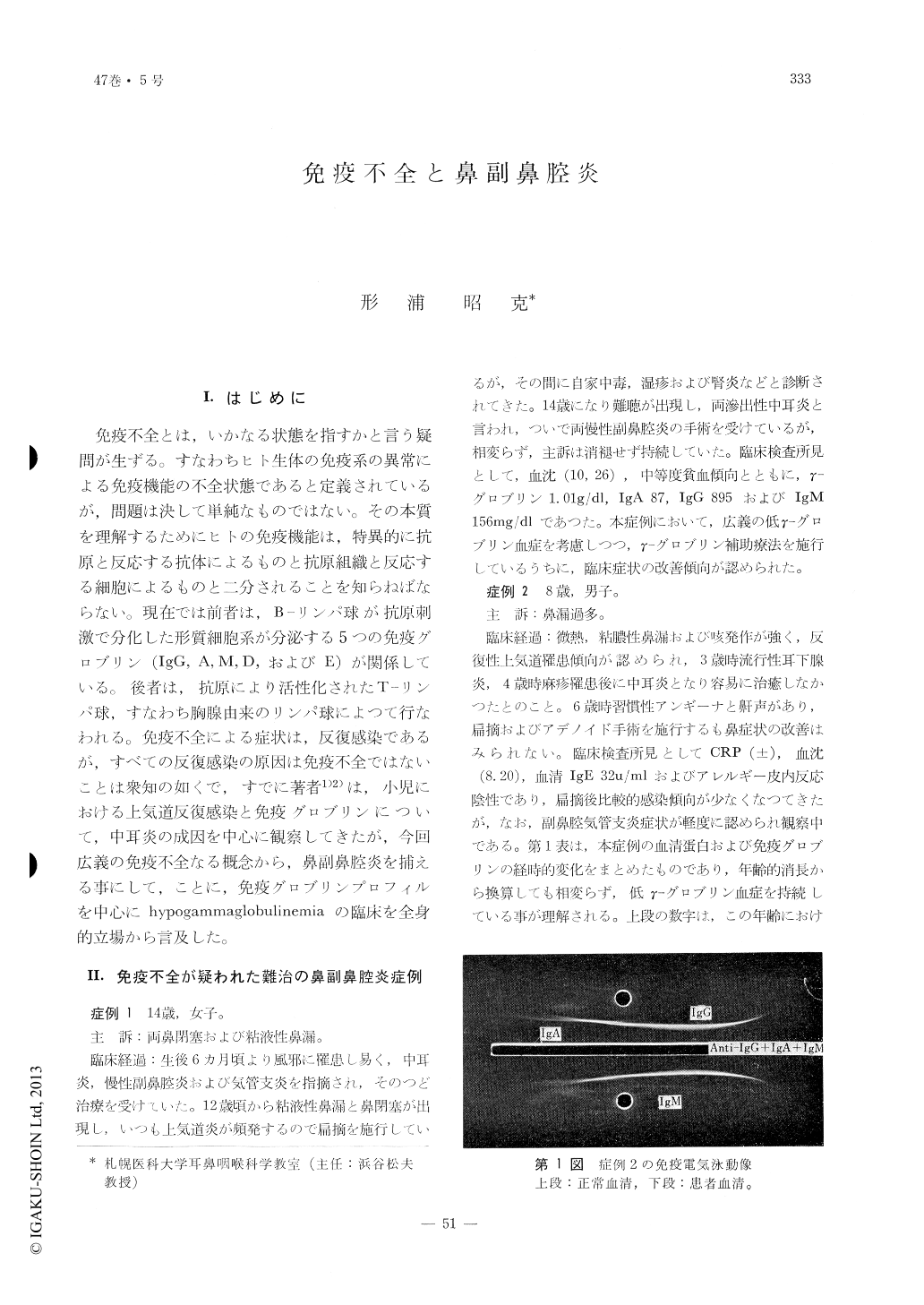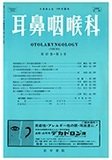Japanese
English
- 有料閲覧
- Abstract 文献概要
- 1ページ目 Look Inside
I.はじめに
免疫不全とは,いかなる状態を指すかと言う疑問が生ずる。すなわちヒト生体の免疫系の異常による免疫機能の不全状態であると定義されているが,問題は決して単純なものではない。その本質を理解するためにヒトの免疫機能は,特異的に抗原と反応する抗体によるものと抗原組織と反応する細胞によるものと二分されることを知らねばならない。現在では前者は,B-リンパ球が抗原刺激で分化した形質細胞系が分泌する5つの免疫グロブリン(IgG,A,M,D,およびE)が関係している。後者は,抗原により活性化されたT-リンパ球,すなわち胸腺由来のリンパ球によつて行なわれる。免疫不全による症状は,反復感染であるが,すべての反復感染の原因は免疫不全ではないことは衆知の如くで,すでに著者1)2)は,小児における上気道反復感染と免疫グロブリンについて,中耳炎の成因を中心に観察してきたが,今回広義の免疫不全なる概念から,鼻副鼻腔炎を捕える事にして,ことに,免疫グロブリンプロフィルを中心にhypogammaglobulinemiaの臨床を全身的立場から言及した。
On the question of chronic nasal sinusitis and immunological imbalance, changes in the amount of serum globulin and immunoglobulin in the body as a whole becomes the most prominent. The following conclusions are reached from this study: 1. Chronic sinusitis difficult to heal showing presence of low γ-globulin should be regarded as a case of congenital immunologically deficient.
2. When deficiencies are found in the amount serum globulin, IgA or IgG, corrective measures should be adopted.
3. The treatment consists of administration of appropriate antibiotics, adrenal cortex hormone or γ-globulin but, none of them appear to be specific.

Copyright © 1975, Igaku-Shoin Ltd. All rights reserved.


